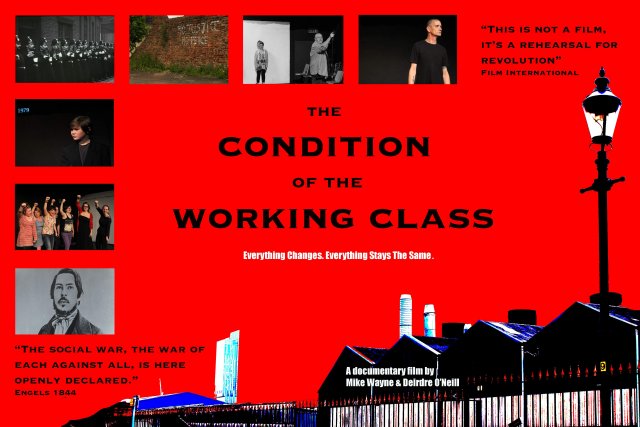
By Mike Wayne & Deirdre O’Neill
Inside Film 2012
www.conditionoftheworkingclass.info
In the 1840s, when Frederick Engels went to Manchester to take up his duties of administering his father’s cotton milling enterprise, he discovered the dreadful conditions in which the city’s workers lived.
His father’s fond hope was that the 24-year-old, young, radical Engels would straighten out and become a bourgeois businessman. Instead, he discovered a working class that was fighting back and surviving through union organisation, political struggle, human solidarity, sheer dogged determination and petty theft.
The experience made Engels into the revolutionary socialist he remained for the rest of his life.
Between 1842 and 1844, he collected the damning evidence of the workers’ oppression that he published under the title of The Condition of the Working Class in England, which prompted Karl Marx to want to meet him.
Their political link also provided the financial lifeline from Engels to Marx that allowed him to pursue his writing and political agitations.
Radical filmmakers Deirdre O’Neill and Mike Wayne made their acquaintance with Engels’ classic book while living in revolutionary Venezuela for a year in 2008.
While reading it, they write in the supporting booklet for this DVD, they were “struck by how relevant the book remains today for Britain, and how far we are from the kind of revolutionary analysis of capitalism the Engels offered”.
Their reading led them to conceive of this project, where they advertised for ordinary people in Manchester and surrounds to form a theatre company, create a stage show that told their own experiences of working-class life and perform it publicly for four nights.
This documentary is a record of that creative process, combined with readings from The Condition of the Working Class in England and other interviews that reveal the current state of working-class life.
It is a wonderful experience.
Again and again, we hear of the petty oppressions and indignities of the British class system, where, for example, kids are taught to feel ashamed of their regional accents and the form of English that they speak.
We hear of extraordinary bravery, such as one young woman who single-handedly took on a whole gang of fascists who were beating up a young Asian man. She says, that if ever in the same circumstances, she would do it again without a second’s thought.
By the end I felt like embracing the whole cast, they were so inspiring.
Engels’ revolutionary spirit, refracted via the Venezuelan Bolivarian experience, brought to life in austerity-blighted northern England, this is a beautiful example of internationalism, socialist heritage and grassroots culture.
